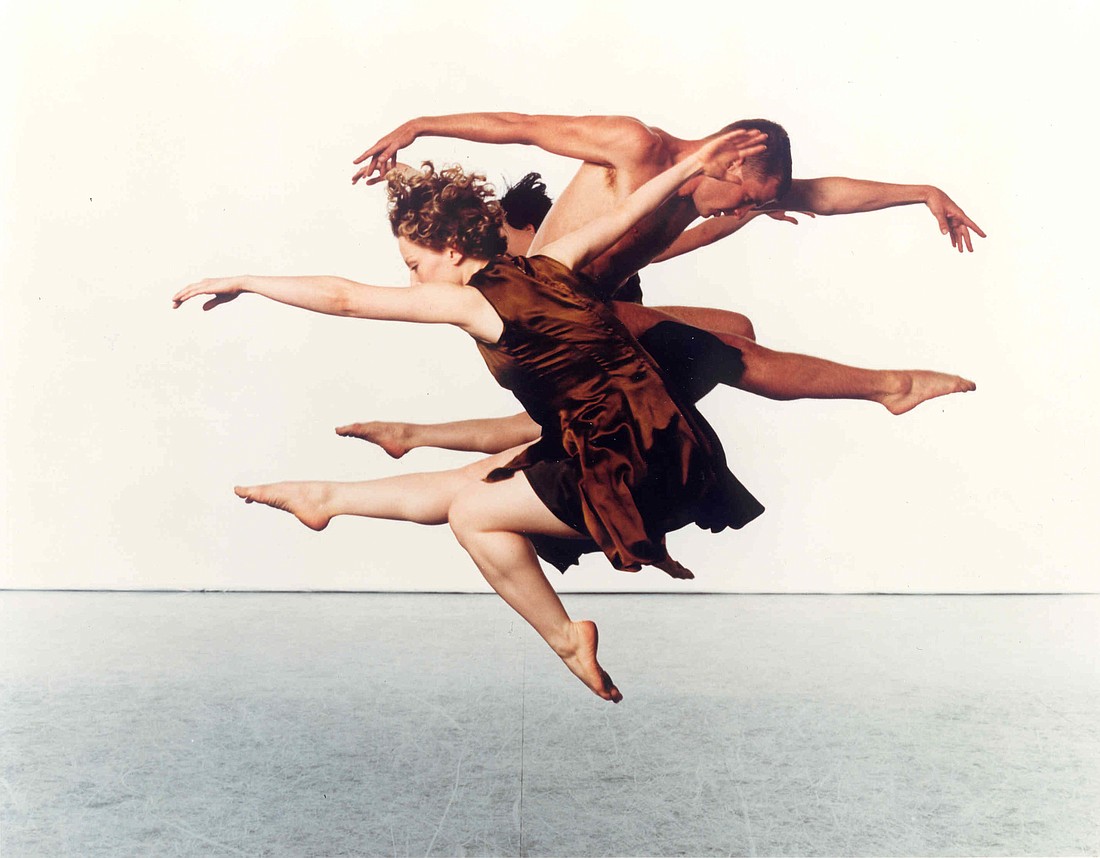- October 19, 2022
-
-
Loading

Loading

When the Ringling Museum and the Baryshnikov Arts Center joined forces in 2009 to launch the Ringling International Arts Festival (RIAF), the event was supposed to be a biannual to-do.
However, the contemporary art showcase was such a rousing success in its first season that organizers decided to plan one every year.
Now in its fourth season, the festival is operating on a tighter budget and under the leadership of a new museum director —Steven High, the former director of the Telfair Museums in Savannah, Ga.
This week, the museum announced its lineup for the 2012 festival, which is down two performers from last year, and runs Oct. 10 to Oct. 13 on the museum grounds.
We asked High to explain some of the changes to the program and why, despite some trimming, Sarasota is still getting a smashing festival.
The museum is hosting a leaner festival this year. Why?
“We’re in a transition phase right now of moving from a festival that was totally funded by outside dollars, to a festival that is really a part of our programming. We wanted to downsize it a little bit for this year and possibly the next year as we get the funding mechanism in place to make it happen.”
Where did you see room for cutbacks?
“We had too tight of a rotation. The cost of restaging all the theaters got really expensive because of all the labor required to move acts in and out. Because we’ve restructured the rotation a little bit we’re able to save some money in that area. As far as the type of artists we’re getting, the investment remains close to the same.”
You included a film program this year. Was that also a cost-saving measure?
“It’s to fill out the program, yes. It’s also something the Baryshnikov Arts Center is focused on as well. They have a dance film program, so it was a natural fit. Since we were scaling back by two live performances, we thought OK, let’s do something else in return. A film program was a perfect solution.”
What kind of concerns have you received from RIAF patrons over the last four years and how have you addressed those issues?
“One of the largest criticisms we had last year was that the shows were so tight that we had to delay a couple performances because some artists went longer than they anticipated. We had people who bought tickets that overlapped and there were some difficulties there. We were very careful this year to be much more generous with time.”
It was a kind of whirlwind schedule, with people rushing from show to show.
“Yeah, there was no real time to talk or absorb the work. This year’s schedule allows for 30 to 45 minutes between performances, so you really get a chance to talk it out with your friends. We’re also creating more gathering spaces on the property so people can kind of hang out a bit more…”
And eat?
“Actually we’re hoping to have more refreshments available. It’s all part of making (RIAF) more visitor-friendly.”
How important is it that RIAF maintain its reputation for presenting strange contemporary work?
“To some degree it is important. However, the Mark Morris Dance Group is probably one of the top dance groups in the country, so being able to feature them is really special because they’re at the height of their art. At the same time, the Pig Iron Theatre Company is very experimental and we have no idea what we’re going to end up with. My observation of the history of this festival is that we show unusual performances; spectacular performances that you wouldn’t have a chance to see anywhere else from performers around the world who wouldn’t be here if it wasn’t for RIAF.”
Like the woman who will play the toy piano in the Skyspace exhibit?
“How cool is that? This is the first time we’ll be showing live performances in Skyspace since we opened the exhibit. We worked with James Turrell (the artist) on that, in the sense that the space is really a place for creativity, a place for people to come in and experience these performances that are in alignment with the (philosophy) of the space. We’re excited to have Adam Tendler, who is doing John Cage’s work on a prepared piano, and Phyllis Chen, who apparently has quite a following, on the toy piano.”
At last year’s RIAF, singer/songwriter Meklit Hadero said that she wrote one of her songs based on an experience she had in a Skyspace in San Francisco.
“We hope to bring Meklit back, not as a part of RIAF, but as part of the ongoing programming for Skyspace.”
That would be awesome. She’s fantastic.
“We’d also like to get (experimental composer/musician) Bora Yoon in the space. She had a residency here this year.”
Anything else people can expect from this year’s festival?
“Yes. We’ve got a great closing night party planned. Last year the festival kind of petered off on Sunday. There was no real coming-to-an-end celebration. Even the artists felt like there was kind of a letdown. So, rather than do an opening night party we decided to do a closing night party featuring the Dirty Dozen Brass Band out of New Orleans. We’re opening it to the widest possible audience in the museum courtyard. The artists should be there, mingling with the people. We’re expecting a very vibrant atmosphere.”